Brent Marchant's Blog, page 67
May 16, 2020
A Look Back at a Sci-fi Classic
Recently, a terrific 2018 article from Popular Mechanics magazine has been circulating social media telling the back story about a little-known and often-overlooked sci-fi classic from 1983, “Brainstorm” (web site, trailer). The film, which almost didn’t make it to the big screen, became somewhat infamous before its release, having earned the somewhat dubious distinction as being known as actress Natalie Woods’s last film (she died during a mysterious drowning incident off Catalina Island during a break from shooting shortly before the picture’s completion). Were it not for the persevering efforts of director Douglas Trumbull to see the project through, “Brainstorm” never would have seen the light of day. And, even at that, the film was a box office flop, despite its many artistic, technical and narrative achievements.
The picture is an important one, though. It was a project that Trumbull launched with the intent of advancing the art of cinema to a new level, and, given the experimental photographic techniques he worked with in developing it, he certainly took things to a new level. The effects of this are especially noticeable when viewed on the big screen, by far the best way to see this movie, if at all possible.
More than that, however, “Brainstorm” has taken on an increasingly added relevance with the development of technology, particularly virtual reality and related developments. At the time of the film’s original release, the technology examined in the film represented a rather fanciful idea, an engaging concept that was seen as intriguing but wholly implausible. That’s not the case, today, though; while the exact technology depicted here may not be replicated per se, it may give us a preview of things to come (and perhaps not too far down the road, either).
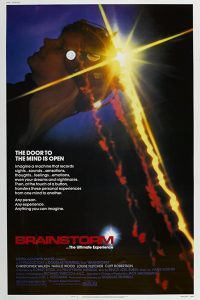
One could say that this is a picture that was ahead of its time. It could be viewed as a taste of the immense potential such a technology could hold, one with many beneficial purposes. It could also be seen as a powerful cautionary tale, graphically depicting the dangers that might await us if deployed for nefarious or self-serving purposes. In either instance, the title “Brainstorm” is most fitting, depending on how we interpret and apply it.
Are we ready for that? And what would we choose to do with it? Those are questions applicable not just to what appears on the screen in this film, but also in real life with the ever-advancing progress of technology. Given conditions today, “Brainstorm” could find a new and quite unexpected life for itself. And, if nothing else, it’s one hell of a picture, one well worth your time.

Cover design by Paul L. Clark, Inspirtainment, www.inspirtainment.com
I included “Brainstorm” as one of the featured reviews in my first book, Get the Picture?!: Conscious Creation Goes to the Movies, originally released in 2007 and re-released in an updated edition in 2014. What follows is an excerpt from that title, my review of the picture as it appeared in the re-released edition. If you haven’t seen this picture, I sincerely hope that you’ll consider doing so after reading this review. Enjoy!
Through Another’s Eyes
“Brainstorm”
Year of Release: 1983
Principal Cast: Christopher Walken, Natalie Wood,
Louise Fletcher, Cliff Robertson, Jordan Christopher,
Donald Hotton, Alan Fudge, Joe Dorsey,
Bill Morey, Jason Lively
Director: Douglas Trumbull
Screenplay: Robert Stitzel and Philip Frank Messina
Story: Bruce Joel Rubin
It’s often been said, usually with a stern finger pointed in our faces, that, if we could see through another’s eyes, we would look at things differently. Of course, since virtually all of us lack that capability (or have chosen not to manifest it), we’ve had a convenient out, enabling us to blithely disregard the wisdom of that admonition. But what if we were to develop the means to acquire that skill? Such a breakthrough would hold the potential to revolutionize the world and how we perceive it, a prospect explored in depth in the sci-fi thriller, “Brainstorm.”
Dr. Lillian Reynolds (Louise Fletcher) is a dedicated research scientist for a major corporation. Her workaholic and chain-smoking tendencies aside, she’s sincere and passionate about her studies into the development of a new technology for faithfully recording one’s sensory perceptions on a special type of tape. Once recorded, these impressions are available for playback by those wishing to experience the subject’s sensations firsthand, right down to the minutest details. The possibilities such technology opens up are incredible in such areas as communications, education, counseling, even adult entertainment. Thanks to Lillian’s work, it’s now possible to know what it’s like to walk in someone else’s shoes—literally.
Joining Dr. Reynolds in her investigation is her best friend and trusted colleague, Dr. Michael Brace (Christopher Walken), an enthusiastic but naïve idealist. Keeping the resources flowing for the duo’s research is Alex Terson (Cliff Robertson), the corporate executive responsible for project oversight. And handling product design to make the technology palatable to consumers is Karen Brace (Natalie Wood), Michael’s wife. Despite their many years together at the company, this project marks the first time that Michael and Karen have worked directly with one another, an amazing irony since they are also in the process of getting divorced.
When Lillian and Michael achieve a significant breakthrough in their work, it’s a great cause for celebration—or at least it should be. While attending a reception in their honor, they learn from Alex that the government is about to intrude on their turf, splashing more than a little cold water on the festivities. Citing such reasons as preventing the spread of potentially dangerous technology, a contingent of officials led by military brass announces its intentions to step in and jointly “manage” (i.e., prepare to take over) the project. Supporting them are their lackey defense contractors, who clearly want first crack at the new technology for their own questionable applications. In addition, to put a face on their presence in the project, the feds introduce their chief researcher (and spy), Landan Marks (Donald Hotton), whom Lillian unhesitatingly blasts as “a hack.”
As Lillian and Michael continue their research, with Landan surreptitiously watching from behind the scenes, they discover that their technology is capable of recording much more than simple sensory impressions. First they find it can tap into emotions and memories. Later they learn that repeated exposure to certain recorded imagery can affect the viewer’s state of mind or physiology (presumably, from a conscious creation standpoint, by altering the viewer’s beliefs associated with such manifestations). With those kinds of capabilities in place, it’s no wonder the feds want to get their hands on this technology. But, as impressive as these capabilities are, they pale in comparison to what the technology can do when it’s used, quite unexpectedly, to register the impressions that occur during the ultimate journey of one’s consciousness—the sensations that happen at the time of, and after, death. With a recording of information like that at stake, the struggle for control of the technology takes on added dimensions—in every sense of the word.
I find this story’s premise fascinating, highly original in its conception of a new technology and inventive in its thinking about how it might be put to use in conscious creation. Some purists may object to the idea that a physical, externalized technology can be used as part of the process, but employing a tool like this to achieve that end doesn’t make the means any less valid; one needn’t rely on only subjective approaches to create and experience manifested phenomena, for the technology making something like this possible wouldn’t exist were it not for the beliefs that conceived of it in the first place.
What the technology enables is quite remarkable. The ability to sense another’s firsthand experiences is an awesome prospect. On the lighter end of the scale, there are tremendous implications in terms of sheer entertainment and adventure value. Travelogues, for instance, would never be the same again. In more substantial ways, the applications of this technology for educational, anthropological and counseling purposes have huge ramifications. The potential gains in such areas as personal understanding, tolerance and compassion alone are enormous. And, with the developments that come out of advanced research, showing how the technology can be used to tap into feelings and memories and to affect physiological processes, there are amazing opportunities for employing it in areas like counseling and health care. It could even be used like an amplifier of our conscious creation beliefs, making truly significant changes to our reality possible.
Of course, the inherent “neutrality” of a device like this also reveals the dual-edged nature of this technological sword. Like the mind itself, this technology essentially allows all possibilities to be fair game, for better or worse, depending on the intents underlying them. And, when those possibilities are committed to tape, they’re all equally capable of being experienced through playback. Easy access to these recorded experiences, as well as the potential for easy amplification of their effects, thus bring new meaning to the notions of being careful what we wish for and what we create. This is particularly true when research shows how the technology is capable of cataloguing what transpires across supposedly impermeable dimensional barriers.
The aura surrounding this picture has an eerie irony about it, given the story line and the tragic off-screen developments that occurred during its shooting. Actress Natalie Wood’s drowning while on a break from filming cast a cloud over the future of the production, putting its completion in limbo for a time. But director Douglas Trumbull moved forward with the project, improvising and reworking elements as needed to finish it. The result was an engaging, if somewhat chillingly poignant movie that critics praised but that largely flopped at the box office. Its inventive premise is supported by a smartly written script, one that thankfully avoids the temptation to spoon-feed viewers about each of its plot developments. Its cinematography and special effects are dazzling, so try to watch this picture on a large screen, if possible. Its ethereal and haunting score provides an appropriately moving backdrop to the thought-provoking subject matter.
Viewing the world through another’s eyes is tantamount to exploring another reality, for, if we each create our own existence, any others that we experience are sure to be different, even if only in small ways, from those we manifest for ourselves. Experiences like that not only provide us with the fresh perspectives of others, but they may also give us new takes about ourselves and our beliefs and, by extension, the realities we choose to create. Indeed, the insights afforded by an ability like that could change the world in countless ways overnight.
Now, that would be something to see.
Copyright © 2007, 2014, 2020, by Brent Marchant. All rights reserved.
The post A Look Back at a Sci-fi Classic appeared first on Brent Marchant.
May 7, 2020
This Week in Movies with Meaning
A review of “Someone Somewhere,” a look at movies for these times and a podcast preview are all in the latest Movies with Meaning post on the web site of The Good Media Network, available by clicking here.

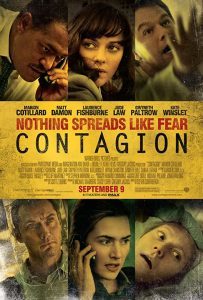

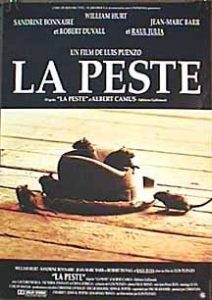


The post This Week in Movies with Meaning appeared first on Brent Marchant.
‘Someone Somewhere’ helps us to find others by finding ourselves
“Someone Somewhere” (“Deux moi”) (2019 production, 2020 release). Cast: François Civil, Ana Girardot, Camille Cottin, François Berléand, Simon Abkarian, Eye Haidara, Rebecca Marder, Pierre Niney, Paul Hamy, Maria Bunel, Patrick d’Assumçao, Vincent Scalera, Emmanuelle Bouaziz, Quentin Faure, Jeanne Arènes, Michel Lerousseau, Dady Saint-Thomas, Jessé Rémond Lacroix, Hamza Ouechtati. Director: Cédric Klapisch. Screenplay: Santiago Amigorena and Cédric Klapisch. Web site. Trailer.
Being alone can be one of the most heart-wrenching experiences any of us can endure. The sense of loneliness frequently weighs heavily on us when we’re uninvolved; the lack of attachment, of connection, eats away at us and leaves us emotionally empty. What’s often worse, though, is having such an experience and not even realizing why we feel the way we do – or that it even might matter, not only in terms of companionship, but also what it could do to us as individuals. So it is for a pair of lonely young Parisians seeking to find themselves – and their destiny – in the insightful new French romantic comedy, “Someone Somewhere” (“Deux moi”).
Warehouse worker Rémy Pelletier (François Civil) and cancer researcher Mélanie Brunet (Ana Girardot) lead remarkably parallel lives but without knowing it. They live side by side in adjacent buildings on the same Parisian street. They both suffer from unexplained sleep issues (Rémy an insomniac, Mélanie a hypersomniac). They each often find themselves lost for words to explain their feelings or their sense of self. They even cross paths with one another, without recognition, on the street, at the local grocery store and in the neighborhood pharmacy. It’s almost as if they’re invisible to one another, despite their many commonalities.

Parisian singles Rémy Pelletier (François Civil, left) and Mélanie Brunet (Ana Girardot, right) lead parallel lives, and they even cross paths often, but nearly always without recognition, as seen in the new French romantic comedy, “Someone Somewhere” (“Deux moi”). Photo by Emmanuelle Jacobson-Roques, courtesy of Distrib Films US.
But, despite their many mutual qualities and experiences, the most significant trait Rémy and Mélanie share is an ill-defined sense of being unsettled. This restlessness may help to explain the sleep disorders to a certain extent, but, as they slowly come to discover, those maladies are symptomatic of something deeper, feelings that need to be probed and unearthed if those lonely souls are ever to get any satisfaction (not to mention a good night’s rest). And it’s something that needs to be addressed sooner rather than later, for it’s beginning to affect other areas of their lives: Mélanie’s job performance starts to suffer, and Rémy experiences a health scare when he passes out on a Paris subway from a sudden and unexpected panic attack. As a consequence, they both begin seeing psychiatrists to help them sort out their issues – and to help them get past their respective bouts of despair.
Mélanie’s weariness, as it turns out, stems from her unresolved grief over the loss of her relationship with Guillaume (Quentin Faure), a boyfriend she adored and with whom she thought she would spend her life. However, as her therapist (Camille Cottin) helps her discover, Mélanie has not given herself permission to let go of the hurt and move on. She also learns that, if she’s ever going to be happy in another romantic involvement, she needs to place her own needs on the same level as those of a partner, to give up being a perpetual people-pleaser, to recognize that she deserves to be just as happy as the recipient of the love and affection she so freely gives. But, to get the ball rolling toward such a goal, Mélanie also needs to take steps to get herself back in the game, to try her hand at meeting others and dating again – provided that she keeps the foregoing considerations in mind.

The guidance of a helpful therapist (Camille Cottin) proves beneficial to a young patient afflicted with a sleep disorder and other issues in the new French romantic comedy, “Someone Somewhere” (“Deux moi”). Photo by Emmanuelle Jacobson-Roques, courtesy of Distrib Films US.
Rémy’s circumstances prove to be more of a conundrum, and the somewhat cryptic tactics used by his therapist (François Berléand), at least initially, don’t make solving this puzzle any easier. On some level, though, Rémy’s counselor recognizes that his patient’s case is a tougher nut to crack, given that he doesn’t appear to have a clue what the underlying issue is. Rémy is single and hasn’t dated anyone for some time, so there’s no apparent relationship baggage. His work life is going well, and he’s even been the recipient of a recent promotion. He also has a co-worker, Djena (Eye Haidara), who seems to be showing some interest in him, at the very least as a friend, if not more. In fact, if anything, he seems to be faring better than most everyone else around him.
So what’s at the heart of Rémy’s story? That’s what he needs to figure out, something for which he needs to dig deep to find resolution. And, in all likelihood, that explains his therapist’s enigmatic approach; he knows that Rémy will need to find his own answers, and, to do that, he’s also aware that his patient will need to do his own work. If he were to attempt to spoon-feed the answers to Rémy, the impact of the explanation for his situation wouldn’t be nearly as revelatory – or as powerful.
As Mélanie and Rémy set off on their respective journeys of personal discovery, not all of the advice they receive comes from their psychiatry sessions. They also get more than their share of good practical guidance from Mansour (Simon Abkarian), the owner of the neighborhood grocery store. That everyday support runs the gamut of subjects, from cat food recommendations to entertainment suggestions to thoughts on what makes life worth living. Mansour thus serves as a sort of real world sage, an effective counterpart to his clinical peers who unwittingly but decidedly helps steer his clients toward happiness, even if in his own small but special way.
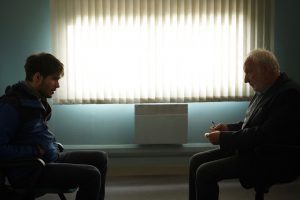
After an unexpected panic attack, warehouse worker Rémy Pelletier (François Civil, left) consults a therapist (François Berléand, right) to help him discover the cause in the new French romantic comedy, “Someone Somewhere” (“Deux moi”). Photo by Emmanuelle Jacobson-Roques, courtesy of Distrib Films US.
By now, you might be wondering how all of this makes “Someone Somewhere” a romantic comedy. Well, that’s what viewers, like the protagonists, will have to find out for themselves. Despite the seeming seriousness of this story, it’s full of plenty of laugh-out-loud moments, and there’s more than a little romance involved, even if it doesn’t necessarily take the form one might expect. But, trust me, all of these narrative elements do tie together, making for a thoughtful, insightful, genre-busting romantic comedy that pleases in highly unusual and extremely satisfying ways. Be aware, though, that you’ll have to exercise some patience in getting to the payoff, a quality that, in itself, poetically reinforces the whole point of the movie.
As the film’s narrative suggests, there’s a lot going on beneath the surface in this picture, and that’s quite fitting when it comes to its philosophical underpinnings, most notably those that relate to the conscious creation process, which maintains we draw upon the power of our thoughts, beliefs and intents in manifesting the reality we each experience. That becomes more than apparent in the character of the lives led by Rémy and Mélanie. And, even if they’re personally unaware of this philosophy’s principles, they nevertheless practice them – for better or worse – in shaping their respective existences.
From the nature of this story, however, it’s also obvious that they’re not especially happy with their circumstances. That’s because neither of them is realistically in touch with their thoughts, beliefs and intents. It’s what makes Mélanie wonder why she’s a hypersomniac and why Rémy is unable to effectively describe himself, something that occurs repeatedly throughout the film. Thus, the first step each of them must take is identifying the motivations that drive them so that they can see how they translate into the manifestations that surround them.

Mansour (Simon Abkarian), owner of a neighborhood Parisian grocery store, doles out pearls of wisdom to his customers on a variety of subjects in director Cédric Klapisch’s latest offering, “Someone Somewhere” (“Deux moi”). Photo by Emmanuelle Jacobson-Roques, courtesy of Distrib Films US.
An important aspect of this is being authentic with themselves. That, however, may be easier said than done. For example, it can be all too easy to be in denial about what we think and feel, making it possible to fudge the truth and deceive ourselves, and that explanation is frequently floated as a likely cause in situations such as this. But there may be a simpler explanation behind this – we just may not know what drives us and the subsequent creation of our reality. When that’s the case, as it seems to be with Rémy and Mélanie, getting the process off the ground can be especially difficult, because one doesn’t have a clue where to begin, let alone know how to proceed.
That’s where the counselors – both formal and informal – come into play. They serve as sounding boards, helping their patients find ways to gain traction in discovering their authentic selves. And, in their own way, that’s probably why Rémy and Mélanie drew these professionals into their lives in the first place. Having no idea how to get started and having had no previous experience dealing with therapists, they needed to try something different to help them get off the dime. Launching the process in this way may take some time, and progress might be slow, but, if it gets things moving when nothing else does, then it’s likely worth the effort, especially when results begin to materialize.
Once armed with this information, it then becomes possible to pinpoint the items of satisfaction and discontent in our reality. And, knowing that our thoughts, beliefs and intents shape what manifests, it’s also possible to rewrite the existing notions to improve the nature of the resulting existence. By eliminating what doesn’t work and replacing those dysfunctional elements with new ones that do, we can mold a new framework, create a new template for the reality we would like to experience.

When a new co-worker comes to her department, CSR Djena (Eye Haidara) takes an interest in him that may involve something more than just friendship in the new French romantic comedy, “Someone Somewhere” (“Deux moi”). Photo by Emmanuelle Jacobson-Roques, courtesy of Distrib Films US.
That’s the odyssey Rémy and Mélanie embark upon through their counseling experience. When answers begin to emerge regarding their personal dissatisfaction, their sleep disorders and other issues, they have opportunities to turn matters around. And it’s truly astounding what those changes can accomplish, both in the areas of immediate concern, as well as in others that may not have been considered. That can open up tremendous new vistas for unexpected and remarkably fulfilling new destinies.
In bringing about such outcomes, there are inevitably clues that appear along the way, leading us in the direction of those new futures. Those clues frequently take the form of synchronicities, those astonishing “coincidences” that seem so perfectly tailored to our particular needs that they simply can’t be random chance. They serve as guideposts that point us toward where we should go. And, if we play our cards right, there’s no telling where that might take us, as Rémy and Mélanie come to find out.
How refreshing it is to see an intelligent romantic comedy that entertains and enlightens while successfully breaking all the rules of the genre. This latest offering from French director Cédric Klapisch serves up a warm, funny, smartly written tale that presents fresh, realistic insights on romance without ever becoming schmaltzy or saccharinely sentimental. Leads François Civil and Ana Girardot turn in fine, exceedingly natural performances that are totally believable and never stretch credibility. And then there’s the cinematography, which shows off the beauty of the French Alps and aspects of Paris probably never seen by outsiders, many of them symbolically and fittingly shot in the shadow of the Basilica of Sacre Cour (Sacred Heart). Through it all, the film takes viewers on quite an emotional journey on its way to its climax, but the trip is well worth it, providing the basis for a joyful and satisfying conclusion. This is a truly terrific film – don’t miss it.

The current closure of moviehouses, unfortunately, could hurt this picture’s chances of finding an audience. However, thankfully, “Someone Somewhere” is available for first-run online streaming. Here’s hoping it develops a following and finds the viewers it deserves – not to mention those who would benefit most from seeing it.
Admittedly, relationships are not everyone’s cup of tea. But, for most of us, we tend to feel and function better when we have someone special in our lives. To find our other half, though, we must first find ourselves, developing an ability to love our own being before we can do so for another. If we succeed at that, however, we just might discover that a soul mate is out there, that there really is someone, somewhere.
Copyright © 2020, by Brent Marchant. All rights reserved.
The post ‘Someone Somewhere’ helps us to find others by finding ourselves appeared first on Brent Marchant.
May 5, 2020
Cinema for These Times
At a time when it seems coverage of the global pandemic is virtually everywhere (and inescapable), it’s hard to believe that there are those out there who can’t get enough about the subject, even when it comes to entertainment. Some – myself included – might find the notion somewhat maudlin or ghoulish, but each of us has our reasons, perhaps an interest in knowing more about the topic or simply just having a morbid curiosity. In any event, for those who possess such an insatiable appetite for the material, there are three films available for home viewing that could help to shed new light on the subject.
Those interested in a film that examines the concept of a pandemic from a comprehensive viewpoint might want to consider director Steven Soderbergh’s 2011 release, “Contagion” (web site, trailer). The picture looks at the subject from multiple angles, including the search for the disease’s origin, the effect on victims and survivors, the work of researchers to find a cure and the impact on everyday life. Viewers will likely find this offering to present a remarkably accurate – and often chilling – depiction of what we’re experiencing, almost as if our current real world situation is following the same script as that used to construct this film. “Contagion” features an impressive all-star cast, including Gwyneth Paltrow, Matt Damon, Laurence Fishburne, Jude Law, Marion Cotillard, Kate Winslet, Bryan Cranston, John Hawkes, Jennifer Ehle and Elliott Gould. The curious are likely to walk away from this one with new insights into what’s going on – and what to expect – as well as wondering which side of the screen they find themselves on.

The internet lights up in the wake of a public health crisis, thanks in part to provocative bloggers like Alan Krumwiede (Jude Law), in the 2011 disaster drama, “Contagion.” Photo by Claudette Barius, courtesy of Warner Bros.
Viewers interested in more typically commercial fare may find themselves drawn to filmmaker Wolfgang Petersen’s 1995 blockbuster adventure, “Outbreak” (web site, trailer). With a cast featuring Dustin Hoffman, Rene Russo, Morgan Freeman, Kevin Spacey, Cuba Gooding Jr. and Donald Sutherland, this big-budget extravaganza tells the tale of a virus run amok in a small Northern California town and the measures employed to control its spread, including potentially drastic steps that threaten the lives of an entire community – and that set a dangerous precedent – unless heroic researchers investigating the illness can step in before it’s too late. “Outbreak” is the kind of popcorn thriller that has more than its share of incidents that at one time would have required a leap of faith to believe but that today no longer seem as implausible as they did when the film was originally released. Enjoy it, but don’t be surprised if you end up feeling like you’re whistling in the graveyard by picture’s end.
Finally, on a more philosophical note, there’s director Luis Puenzo’s 1992 French production of “The Plague,” originally titled “La Peste” (web site, trailer). Based on a novel by existential author and philosopher Albert Camus, this release – like “Contagion” – examines the subject from multiple angles. But, unlike that offering, “The Plague” goes deeper, looking at the topic from the standpoint of personal interpretations. What exactly is the underlying cause of the pandemic? Is it merely something biological? Or is it something deeper, such as divine retribution for the sins of humanity? In addition, the film also probes the efforts of the picture’s principal characters, providing perspectives on how they each see the incident – a medical emergency to be addressed, a news story to be covered or a spiritual crusade to save man’s souls before it’s too late. With a cast that includes William Hurt, Robert Duvall, Raul Julia and Sandrine Bonnaire, “The Plague” is certainly the most profound of these three offerings, and screening it should be reserved for a time when viewers can devote their undivided attention to it. This one may be a little more difficult to find than the other two, but it’s worth the time, especially in an uncertain age such as this, one in which many of us find ourselves assessing the meaning of this phenomenon and what it may hold for our future.



These options, admittedly, are not for everyone. In fact, for many of us, more escapist fare of another nature may be more fitting and appropriate. But, as the old saying goes, “Forewarned is forearmed,” and the information imparted by these offerings may help to provide us with the knowledge and insights necessary for tackling this difficult situation. Just be careful not to make things any harder on yourselves than they already are.
Copyright © 2020, by Brent Marchant. All rights reserved.
The post Cinema for These Times appeared first on Brent Marchant.
May 4, 2020
Movies for the Times on The Cinema Scribe
Tune in for the latest Cinema Scribe segment on Bring Me 2 Life Radio, Tuesday, May 5, at 2 pm ET, available by clicking here. And, if you don’t hear it live, catch it later on demand, with new listening options available! In addition to Spreaker, the show is now available on iHeart Radio, Spotify, Podcast Addict and Podchaser!








The post Movies for the Times on The Cinema Scribe appeared first on Brent Marchant.
April 29, 2020
A Second Look at an Inspiring Documentary
Join host Frankie Picasso, author Sandra Beck and yours truly for a special edition of The Good Media Network’s Mission Unstoppable when we speak with filmmaker Renee Scheltema about the new, updated version of her sustainability documentary, “Normal Is Over 1.1.” Tune in to Facebook Live on Thursday April 30 at 1 pm ET by clicking here. For more information, click here.



The post A Second Look at an Inspiring Documentary appeared first on Brent Marchant.
April 20, 2020
Home Viewing Options on The Cinema Scribe
Tune in for the latest Cinema Scribe segment on Bring Me 2 Life Radio, Tuesday, April 21, at 2 pm ET, available by clicking here. And, if you don’t hear it live, catch it later on demand!

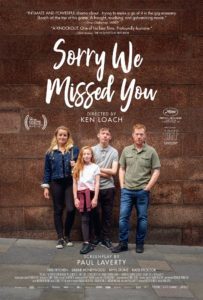


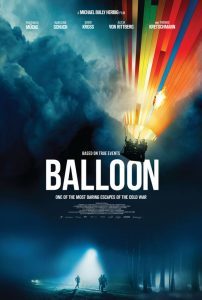
The post Home Viewing Options on The Cinema Scribe appeared first on Brent Marchant.
April 17, 2020
This Week in Movies with Meaning
Reviews of “Extra Ordinary,” “Sorry We Missed You” and “Bacurau,” as well as a podcast preview, are all in the latest Movies with Meaning post on the web site of The Good Media Network, available by clicking here.





The post This Week in Movies with Meaning appeared first on Brent Marchant.
April 16, 2020
‘Bacurau’ showcases the virtues of standing one’s ground
“Bacurau” (“Nighthawk”) (2019 production, 2020 release). Cast: Bárbara Colen, Thomas Aquino, Silvero Pereira, Sônia Braga, Udo Kier, Thardelly Lima, Rubens Santos, Wilson Rabelo, Carlos Francisco, Luciana Souza, Márcio Fecher, Jr. Black, Val Junior, Lia de Itamaracá, Karine Teles, Antonio Saboia, Jamila Fecury, Jonny Mars, Alli Willow, James Turpin, Julia Marie Peterson, Brian Townes, Charles Hodges, Chris Doubek, Buda Lira, Fabiola Líper. Director: Juliano Dornelles and Kleber Mendonça Filho. Screenplay: Kleber Mendonça Filho and Juliano Dornelles. Web site. Trailer.
The impact of bullies has gained wider recognition in recent years. In most instances, this increased attention has focused on the detriment to individuals, but it can just as readily affect groups and entire communities, even if these situations don’t garner the same amount of distinction. But that’s not to suggest that such conditions must be willingly tolerated, a circumstance explored in the enigmatic new morality play, “Bacurau” (“Nighthawk”).
What’s happening in the remote Brazilian village of Bacurau? Not long after the death of the town’s 94-year-old matriarch, Carmelita (Lia de Itamaracá), all manner of strangeness has occurred. Admittedly, things weren’t entirely “normal” before her passing, but, in the time since her transition, the weirdness has been significantly ramped up. Consider the following:

The death of the matriarch of a remote Brazilian village is followed by a series of unusual events, a concern for the locals, in the intriguing new offering, “Bacurau” (“Nighthawk”), available for first-run online streaming. Photo by Victor Jucá, courtesy of Kino Lorber.
A herd of horses comes galloping into town late at night, waking residents as they stare on, completely mystified. What prompted this unexplained phenomenon?
With the local water supply inexplicably compromised, Bacurau residents have come to depend on regular deliveries of a tanker truck driven by Erivaldo (Rubens Santos). But, if water is such a precious commodity, why would anyone fire gun shots at the vehicle, puncturing the tank and causing it to leak all over the dirt road that runs through the middle of town?
A detested local politician running for re-election, Tony Jr. (Thardelly Lima), shows up unannounced with supplies of food and medication – much of it expired – seeking votes. His appearance prompts residents to disappear from the streets and to hurl insults at him as he sheepishly departs.
Given the village’s remote location, visitors are rare, so it naturally comes as a surprise when a pair of motorcyclists (Karine Teles, Antonio Saboia) dressed in neon-colored outfits rides into town. They claim to be touring the countryside, but their vague responses to questions from the locals raise suspicion. Why have these out-of-place urban tourists suddenly appeared now?
How the visiting sightseers even found Bacurau is a mystery, too, especially since, for some odd reason, the village’s existence has inexplicably vanished from all electronic maps. The town that could once be found with a few internet clicks no longer occupies a location in cyberspace. Yet the town is still present physically, so why hasn’t it retained its virtual identity as well?
In the skies over the town’s periphery, a UFO appears, hovering above Damiano (Carlos Francisco) as he makes his way home to his farm. But Damiano notices something unusual about the craft – it doesn’t appear to be a UFO but a drone disguised to look like one. Why would anyone go to such trouble? And what exactly is the drone tracking?
And, if all of the foregoing weren’t enough, mysterious shooting deaths suddenly begin to occur, including the residents of a nearby farm and a pair of investigators (Márcio Fecher, Val Junior) out to see what happened to them. Add to that more deaths after an unexplained power outage shuts down electricity to all of Bacurau. Now, it would seem, things are getting serious, and drastic measures are called for.

Teresa (Bárbara Colen, center), granddaughter of the deceased matriarch of a remote Brazilian community, returns home for her relative’s funeral in the latest release from the writing/directing duo of Juliano Dornelles and Kleber Mendonça Filho, “Bacurau” (“Nighthawk”). Photo courtesy of Kino Lorber.
To get to the bottom of these mysterious incidents, an ad hoc group of locals begins looking into them. Heading up the team of amateur sleuths is Acacio (a.k.a. Pacote) (Thomas Aquino), a shadowy figure whose past is never really explained, though he would seem to pass as a hired gun. Pacote is joined by his onetime girlfriend, Teresa (Bárbara Colen), Carmelita’s granddaughter, who has returned home to attend her funeral; Plinio (Wilson Rabelo), Teresa’s father and a teacher at the local school; Dr. Domingas (Sônia Braga), the town physician, who’s agreeable when she’s sober, but watch out when she’s been drinking; Lunga (Silvero Pereira), a wanted outlaw who’s caught up in the water supply issues; and Damiano, the farmer who spotted the drone. This ragtag group of investigators share leads and combine their efforts to figure out what’s happening and how to address them.
As the inquiry unfolds, evidence of the presence of outsiders begins to emerge, most notably that of a stern senior with a German accent named Michael (Udo Kier). He stalks the village with his band of followers (Jonny Mars, Alli Willow, James Turpin, Julia Marie Peterson, Brian Townes, Charles Hodges, Chris Doubek), all of whom seem very intent on carrying out a mysterious and macabre mission, but to what end? That’s what the residents of Bacurau must find out – while there’s still time.
One would think that Bacurau’s idyllic setting would make it a desirable place to live. But, if so, why has it been beset by so many hardships and ominous happenings? Why here? And what, if anything, have the residents done to bring these ordeals down upon them? That’s what the villagers hope to discover, but, given the cryptic nature of these occurrences, solving the mystery may prove challenging.

Mysterious stranger Michael (Udo Kier, left) has a tense encounter with village physician Dr. Domingas (Sônia Braga, right, back to camera) in the new Western-style thriller, “Bacurau” (“Nighthawk”). Photo courtesy of Kino Lorber.
In perilous situations such as these, one would think it might be easy to buy into the fear that often accompanies them. But, perhaps somewhat surprisingly, such apprehensions aren’t exactly the norm here. Why? It has to do with the independent, determined spirit of the townsfolk. Living on the edge of the Brazilian frontier, they have long considered themselves a tough, thick-skinned, strong-willed people, unafraid to stand their ground to protect what they’ve built, even in the face of potentially powerful foes. Evidence of this can be found proudly displayed in the town’s museum, a chronicle of Bacurau’s tradition of assertiveness and, when called for, stalwart defiance. And, with such an innate attitude in place, the residents are prepared to tackle the current crisis as just the latest challenge to their sovereignty and authority. In light of that, it should thus come as no surprise that the town’s name translates from Portuguese into English as “nighthawk.”
This is all made possible by the beliefs of the townsfolk, staunch adherents of the practice of conscious creation, the philosophy that holds we draw upon these metaphysical resources in manifesting the reality we experience. Regardless of whether or not they have heard of this doctrine, they’re nevertheless well versed in its principles, especially when they apply them collectively in acts of co-creation. And, given that their materialization efforts are geared toward protecting what they’ve so diligently and proudly built, they have a vested stake in making that happen. That kind of commitment, built upon their resolute faith and conviction, stems from the underlying beliefs of the residents working jointly to see the realization of their desired outcome.
A number of belief components make up this overall perspective. For example, they’ve learned how to conquer their fears and live courageously, accomplishments that they’ve drawn upon for inspiration in reinforcing the beliefs they employ in manifesting their existence. In that vein, they have also learned how to hold onto their personal power, refusing to give it away to those seeking to take it from them. And, of course, they have developed a keen sense of discernment to strip away the clutter that could otherwise obscure the truth, allowing them to see matters clearly, enabling them to put appropriate beliefs in place to help them attain what they seek to accomplish.

Michael (Udo Kier), leader of a mysterious band of foreigners, has an agenda for a remote Brazilian village, but what is it? That’s the secret of 2019 Cannes Film Festival Jury Prize winner “Bacurau” (“Nighthawk”), now available for first-run online streaming. Photo courtesy of Kino Lorber.
What’s more, the residents of Bacurau don’t hesitate to look beyond themselves for help. As a deeply spiritual people, they’re well aware of the powerful beneficial forces that transcend the boundaries of the physical reality surrounding them, and they’re willing to avail themselves of that assistance when needed. They readily understand that the “localized” existence they know best is but merely one expression of a greater reality and that those who dwell in those other dimensions can provide aid when required. They know that the Universe provides what’s needed, including through its emissaries, even some who are already familiar to them, such as their recently departed matriarch. Miracles, it would seem, truly are possible.
In many regards, the experiences of the people of Bacurau are a modern-day fable of sorts, a metaphor for the state of Brazilian society and politics, institutions besieged by a variety of marauding forces, including some that originate outside the country’s borders. The townsfolk, who represent a diverse array of constituencies and come from a wide range of backgrounds, stand as symbols of a coalition willing to collectively and heroically confront adversaries seeking to plunder the community for their own gain. They demand respect and make that intent plainly known to all who pass their way, even on the signage at the entrance to town, where the village’s motto – “Se for, vá na paz” (“If you go, go in peace”) – is clearly emblazoned for everyone to see. Indeed, in an age where the global reset button is in the process of being pushed, their story provides an inspiring tale of what’s possible, especially when it comes to what will and won’t be tolerated.

This modern-day homage to good old-fashioned Westerns like “The Magnificent Seven” (1960) (and its classic Japanese predecessor, “Seven Samurai” (1954)), combined with whimsical, spiritual and paranormal aspects in the tradition of The Twilight Zone, give the film a singularly distinctive spin and make it one of the most readily identifiable offerings in the genre. Throw in the overt and metaphorical criminal and political elements, and you’ve got quite a mix of influences and volatility. The film’s narrative, unveiled ever so meticulously and methodically, addictively retains viewer interest by preserving the mystery as long as possible but without becoming tiresome or tedious. The picture’s excellent cinematography, strategically placed splashes of campy humor and classic good vs. evil story line make for an entertaining couple of hours. Be forewarned, however, that the picture is quite violent at times, though it never becomes wantonly gratuitous outside its context (even though sensitive viewers may wish to take a pass).
Writer/directors Juliano Dornelles and Kleber Mendonça Filho have created what many are already calling a cult classic. That recognition surfaced after the 2019 Cannes Film Festival, where the picture won the Jury Prize award and received nominations for the Queer Palm award and the Palme d’Or, the event’s highest honor. “Bacurau” played at numerous stops on the 2019 film festival circuit, followed by a gradual release overseas at the end of the year. In North America, with the current closure of movie theaters, the picture has been made available for first-run online streaming.

“Se for, vá na paz” – “If you go, go in peace” – the motto of Bacurau, a remote Brazilian village, gets put to the test in the enigmatic new thriller, “Bacurau” (“Nighthawk”), now available for first-run online streaming. Photo courtesy of Kino Lorber.
Standing one’s ground may not be easy, calling for qualities like perseverance, fortitude and gumption, commodities that may not be readily mustered individually, let alone collectively. However, when there’s a lot to lose, somehow we often manage to find a way to summon them up. With so much at stake, their importance can’t be overstated. So, with that in mind, it’s in our best interests to get busy and make that happen so that, like the inner bacurau that lurks inside each of us, we can stealthily and successfully stalk and overcome our prey – before they do the same to us.
Copyright © 2020, by Brent Marchant. All rights reserved.
The post ‘Bacurau’ showcases the virtues of standing one’s ground appeared first on Brent Marchant.
April 15, 2020
‘Sorry We Missed You’ charts the challenges of starting over
“Sorry We Missed You” (2019 production, 2020 release). Cast: Kris Hitchen, Debbie Honeywood, Rhys Stone, Katie Proctor, Ross Brewster, Charlie Richmond, Julian Ions, Sheila Dunkerley, Maxie Peters, Christopher John Slater, Heather Wood, Alberto Dumba, Natalia Stonebanks, Jordan Collard. Director: Ken Loach. Screenplay: Paul Laverty. Web site. Trailer.
Have you ever been so dissatisfied with your circumstances that you were willing to take drastic steps to change them? And, if so, have you ever subsequently found yourself no more fulfilled afterward, despite high hopes going in? What next? Do you formulate yet another new plan, or do you reconcile yourself to the futility of trying and give up on starting over? That’s a tough call, especially for the discouraged, but it’s the reality for a blue collar family seeking a better life in the affecting new drama, “Sorry We Missed You.”
It’s a safe bet that most of those in the working class want to be able to get ahead. So it is with the Turner Family of Newcastle, England. Breadwinners Ricky (Kris Hitchen) and Abby (Debbie Honeywood) put in long hours to provide for their children, Seb (Rhys Stone) and Liza Jae (Katie Proctor). They’ve been trying to save up to buy a home, an opportunity they once nearly realized but that slipped away when the housing bubble burst, forcing them to rent ever since. But, despite the so-called resurgence of the economy, saving enough money for a down payment has been challenging, so much so that, even with two incomes, the dream always seems out of reach.
After years of working in various construction and laborer trades, Ricky has decided to try a new approach – becoming an independent contractor for a package delivery company. Maloney (Ross Brewster), the smooth-talking but hard-nosed manager of the depot out of which he’ll work, paints a rosy picture of the opportunity, deftly qualifying it with an array of euphemistic caveats, most of which carry monetary penalties for failure to comply with expectations. But, with the potential for glittering rewards dangled before him, Ricky decides to sign on.

The Turner Family (from left), Abby (Debbie Honeywood), Liza Jae (Katie Proctor), Seb (Rhys Stone) and Ricky (Kris Hitchen), seek a better life in a challenging economy, as depicted in the new English drama, “Sorry We Missed You.” Photo by Joss Barratt, courtesy of Zeitgeist Films.
From the outset, however, the promise of this arrangement gets thrown into question. For instance, Ricky is given the choice of renting his delivery vehicle or buying one outright. The high purchase price is daunting, even though it would appear to be more economical in the long run than paying on a hefty ongoing lease. But, to make the acquisition, Ricky would need to shell out a significant down payment, one that can only be accommodated by selling Abby’s car, a move that would subsequently require her to use public transportation to get around on her job as a visiting home caretaker for the elderly and disabled, a prospect that upsets her. However, with a basket of optimism behind him, Ricky goes ahead and makes the purchase in hopes that it will get him off to a flying start with this new opportunity.
Before long, though, reality sets in, and Ricky begins to see that the grass isn’t as green as he imagined. Troubles with tight delivery schedules, irascible package recipients, long hours, endless company rules and regulations, and ever-accruing fines for the smallest of infractions take their toll, leaving Ricky perpetually exhausted and burdened by the feeling he needs to keep working despite the hardships. Meanwhile, Abby’s job becomes more onerous as well, given that her commuting time between client visits is longer and out of her control, not to mention the fact that the responsibilities and requirements of her work seem to grow increasingly more demanding.
With Ricky and Abby working so much, life at home becomes more difficult as well. Seb, an artistically gifted but rebellious teen with something of a history of acting out, grows more unruly, skipping school, defying his parents and partaking in petty crime. Liza Jae, meanwhile, a remarkably self-sufficient pre-teen, seeks to hold the family together, helping out Ricky with his delivery route and trying to reason with her older brother. But, no matter how much Ricky, Abby and Liza Jae pull together to maintain the household, matters grow progressively more trying, especially as Seb seeks to assert his independence – and becomes embroiled in ever more trouble.

Breadwinner Ricky Turner (Kris Hitchen) starts a new job as an independent contractor for a package delivery service in director Ken Loach’s acclaimed new drama, “Sorry We Missed You.” Photo by Joss Barratt, courtesy of Zeitgeist Films.
As the Turners’ story unfolds, the situation worsens, so much so that the family’s very survival is threatened. The circumstances raise the question, “Is this living?” Indeed, if this is what it takes to get ahead, one can’t help but wonder whether it’s all worth it, especially since it seems as though the deck is stacked against them in a scrupulously rigged system. Of course, it also makes one wonder how long working class folks are willing to put up with conditions like this. That’s what the Turner Family is up against. How will they respond?
Keeping up with everything that’s going on in today’s fast-paced world is challenging. That can become even more problematic when we’re confronted with a barrage of ever-growing demands, particularly when it comes to trying to strike a balance between our home and work lives. Just ask any parents who dutifully toil away – sometimes in multiple jobs – to make ends meet while caring for their families. Such situations can truly test our mettle. But how much are we willing to put up with?
Circumstances like these often prove to be important life lessons, especially when it comes to managing our personal power. How we fare at that generally has much to do with our beliefs, the building blocks of the conscious creation process, the philosophy that maintains we draw upon these resources in manifesting the existence we experience. So this naturally raises the question, “How are we doing?” It also prompts us to examine what beliefs we have in place to support our positions. Are they adequate for our needs? Are we comfortable wielding the personal power we possess? Or are we coming up short?
Many of us are unaware of just how much personal power we have – or could have. In either case, it all depends on the beliefs we put in place. If we allow ourselves to buy into the notion that we are powerful beyond measure, as author Marianne Williamson put it, there’s no telling what we might accomplish. But, if we see our lives as a struggle, then we’ll constantly experience it as such – until we intentionally decide to contend otherwise.

Visiting home caretaker Abby Turner (Debbie Honeywood, left) attends to one of her clients, Rosie (Sheila Dunkerley, right), in the unflinchingly honest new working class drama, “Sorry We Missed You.” Photo by Joss Barratt, courtesy of Zeitgeist Films.
The Turners’ experience provides a perfect example of this. For years, Ricky and Abby have lived with the clouds of stress and strain perpetually hanging over them, undercutting their dreams and forcing them to keep plugging away for unsatisfying and underwhelming gains. When Ricky decides to become an independent contractor, he takes a step toward asserting his independence and following his desire to do better for himself and his family. But is he fully convinced that his new plan will accomplish that? If he’s unwittingly holding onto beliefs from his old way of thinking, his attempt at establishing a new life won’t bear fruit; the contradiction in his beliefs will undercut his efforts at successfully striking out in a new direction. This is not to suggest that his new undertaking is all for naught; he simply needs to further refine his beliefs to bring about the desired outcome. This will almost assuredly take some honest scrutiny to find the fly in the metaphysical ointment, but, should he succeed at this, he has a bona fide opportunity to pursue his family’s dream of a better life – and even to achieve it.
A key element in this is being able to push aside the belief camouflage that’s obscuring a clear view of the true intentions that are in place. In many cases, we may think we have an accurate perspective on what we’re trying to manifest, but, upon further review, we may well find that undetected ancillary considerations are blocking our view. Oftentimes this involves identifying long-established beliefs that probably took root in our past; they become grounded in our consciousness and hold on relentlessly, even if not obviously, thereby enabling the perpetuation of our creations – and illustrating the power and persistence of our beliefs.
In Ricky’s case, there’s a good chance that those struggle-based beliefs have held on, cleverly concealed and preventing his new intentions from coming into full flower. This becomes evident through the many trials and tribulations that he experiences, both on the job and in his home life, which usually serve to make his work life that much more challenging. It creates a maddening cycle from which escape seems virtually impossible. That’s certainly not set in stone, but, if he genuinely wants out, he must make a concerted effort to change his circumstances by changing his beliefs.

Delivery man Ricky Turner (Kris Hitchen, left) receives assistance from his young daughter, Liza Jae (Katie Proctor, right), on his route, one of the rare times they get to see each other, in director Ken Loach’s “Sorry We Missed You.” Photo by Joss Barratt, courtesy of Zeitgeist Films.
In situations like this, a tool that can be especially helpful is developing our sense of discernment, the ability to critically size up the prevailing conditions to see where the problems lie and where the opportunities for improvement exist. Taking time to deliberately scrutinize the circumstances goes a long way toward accomplishing this, especially when it comes to employing the power of our intuition. As conscious creators are well aware, intuition plays a pivotal role in belief formation, and it’s a tool that’s often underused or dismissed as being unreliable. However, should we purposely employ it more often, taking it seriously despite its seeming “irrationality,” we may find that the faith and trust we place in it pays big dividends.
Learning to trust our intuition is part of an even bigger component of this puzzle – our willingness to move past our fears and live heroically. Charting the waters of the unknown can be daunting, to be sure, yet the opportunities that can best foster our personal growth and development often lie in that unexplored territory. To their credit, Ricky and Abby both seem willing to take a stab at this, even if their steps are somewhat tentative at times. But the example they set provides the timid among us with courageous guidance on how we might consider proceeding, especially if we’re dissatisfied with our circumstances.
All of the foregoing is important given recent events. The global pandemic and the attendant panic that has accompanied it have certainly shaken us to our core, prompting rampant uncertainty about the future. However, as many in the metaphysical community have observed, considering the profound impact these conditions have had and continue to have, we’ve also been presented with an opportunity for groundbreaking change. Since it’s become apparent that we have embarked upon a new normal in which the world we’re entering will be significantly different from what we’re accustomed to, we now have a chance, both individually and collectively, to launch into a new future for ourselves. We have a window open to us to wipe away what no longer serves us. Great changes have already become readily apparent in such areas as crime rates and the environment, emerging with remarkable speed, scope and consistency. So, if change can be effected in ventures as sweeping as these, imagine what else might be possible, particularly in endeavors that hit closer to home. When couched in those terms, Ricky and Abby just might be able to get that house of theirs after all.

At a rare family dinner, the Turner Family (clockwise from left), Ricky (Kris Hitchen), Abby (Debbie Honeywood), Seb (Rhys Stone) and Liza Jae (Katie Proctor, back to camera), get to see one another for a change in the new English drama, “Sorry We Missed You.” Photo by Joss Barratt, courtesy of Zeitgeist Films.
Director Ken Loach’s searingly honest saga about the lengths a working class family must go to in order to make ends meet serves up a damning indictment of a business world lacking in compassion, sensitivity and flexibility. In many ways, this release recalls the filmmaker’s previous offering, “I, Daniel Blake” (2016), a clarion call for greater empathy for those who have needs that must be addressed, especially by sources eminently capable of providing it. The film’s poignancy is particularly relevant under today’s prevailing conditions, especially in matters of making a living and having hope for the future. The picture’s superb ensemble cast and incisive script work together seamlessly to tell a tale of frustration, thwarted dreams and grim truths about a rigged system that keeps even the most industrious laborers from being able to get ahead, no matter how honestly and productively they toil. “Sorry We Missed You” can be an infuriating movie to watch at times, but its honesty and authenticity are undeniable – the kind of story that inspires us all to demand change.
Loach’s latest effort has not gone unnoticed. In the recently completed movie awards season, the picture earned a BAFTA Award nomination for Best British Film, as well as a Palme d’Or nod at the 2019 Cannes Film Festival, the event’s highest honor. The film has screened widely overseas and has played at numerous film festivals. In North America, with the current closure of movie theaters, the picture has been made available for first-run online streaming.

When life’s lemons are so plentiful that it would take a tanker truck to hold all of the lemonade they’d make, it would be easy to give up out of sheer frustration. That’s understandable, but, in the long run, what would that solve? The problems that sparked such a defeatist response would still linger, perhaps getting worse. Instead, rewriting the game plan at least offers the potential for turning things around for the better. Such a venture would likely require some thoughtfulness, creativity, and even a little good, old-fashioned elbow grease, all with the aim of realizing a new hope – and a new future.
Copyright © 2020, by Brent Marchant. All rights reserved.
The post ‘Sorry We Missed You’ charts the challenges of starting over appeared first on Brent Marchant.



